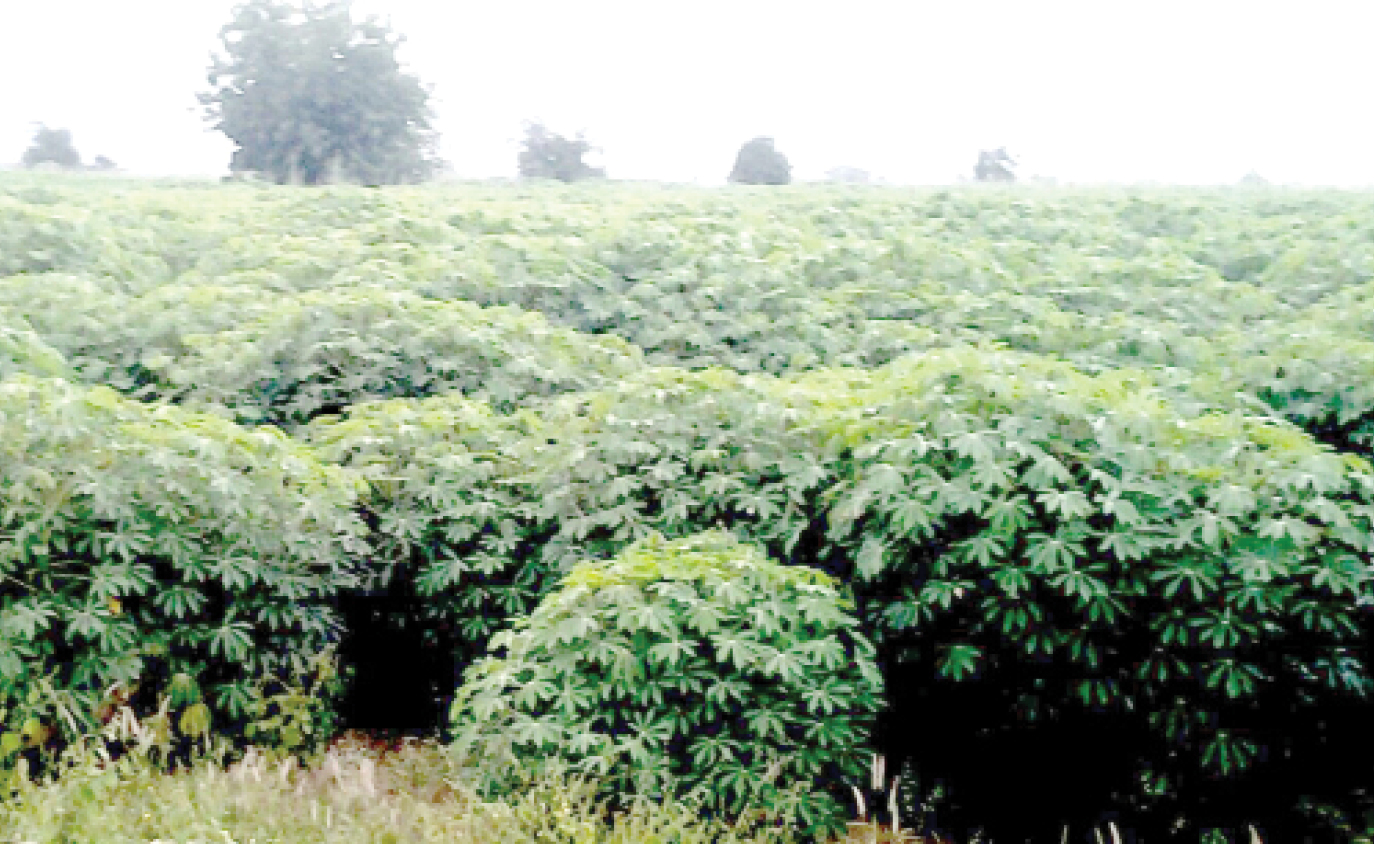Cassava farming, a goldmine in the offing for Kebbi farmers
An agricultural goldmine is in the offing for farmers in Kebbi State following the introduction of a hybrid cassava seedling that is capable of giving an output of 32 tons per hectare. Ummi Hadiza Farms and Investment in Jega Local Government Area pioneered the farming of the hybrid cassava variety that was imported from Europe. […]

The hybrid cassava in Kebbi
An agricultural goldmine is in the offing for farmers in Kebbi State following the introduction of a hybrid cassava seedling that is capable of giving an output of 32 tons per hectare.
Ummi Hadiza Farms and Investment in Jega Local Government Area pioneered the farming of the hybrid cassava variety that was imported from Europe.
The farm, which is in partnership with the Kebbi State University of Science and Technology Aliero, started the farming of the hybrid cassava about 10 months ago and the crop has already attained maturity and looks promising.
Ummi Hadiza Farms, which engages in mass production of cassava using modern methods of farming is closely working with experts from the state university, said the newly introduced farming method for the new cassava was blended with the traditional method of cultivating the crop.
The hybrid cassava seedling which comes in stems requires the farmer to billet it in proportions of three to four buds per cut for planting.
The seedling is planted is buried horizontally in the soil as against the old method of vertical pegging of the billeted stem.
The wisdom behind the new method is to maximise production as each bud is expected to germinate with an output of several numbers of tubers.
Despite the fact that it is a new breed seedling, it does not require rigorous management, as weeding only thrice sees it to maturity.
The introduction of the improved cassava variety will not only increase the total production of cassava in the state, but will also place Kebbi among the largest producers of cassava in the country.
It will also be a gateway for the state government to realise its potential in its present campaign for mass production of cassava for the purpose of going into commercial production of ethanol.
It would be recalled that Kebbi State recently signed a deal with the Nigeria National Petroleum Company (NNPC) for the production of biofuel in commercial quantity using cassava.
The hybrid seedling has become a households name within a short time of its arrival to the state as many farmers have given a shot and the result is encouraging as a more farmers are coming for the seedling.
Speaking to Daily Trust, the Manager of Ummi Hadiza Farms, Abubakar Abdullahi Dangamagi, said his farm imported the seedlings from neighbouring Niger Republic through a dealer that got his supply from France, and that the five kilogrammes of the seedlings he bought covered his 10 hectares of cassava farmland.
He said the management of the new variety did not require lots of time and energy as in the case of the traditional seedlings.
Dangamagi explained that the variety could give as much as 32 tons per hectare, while the minimum one could realise was 22 tons per hectare.
According to him, his farm went into the production of cassava with a view to complement government’s effort in its campaign for mass production of the crop for implementing its policy for economic diversification, saying the government was planning to go into commercial production of ethanol.
He said they were able to achieve the feat of mass production of the crop because his farm was in partnership with the state-owned university, where they were working hand in hand with professionals, adding that this had helped the farm to grow steadily in the last 18 years of its existence.
He explained that, “We keyed into cassava farming in order to take advantage of Kebbi State Government’s policy on mass production of cassava. As a business entity, we took risk and invested in the sector. Today, we are not only the leading producer of cassava in the state, but also a farm with the best variety of the crop.’’
